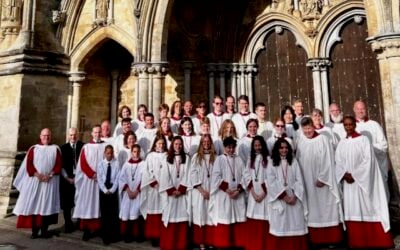Jack Holmgren, a rising junior at East Greenwich High School, is spending several weeks in Nepal and, mainly, Bhutan this summer. These are a few of his blog posts.
The Seed, The Scam, The Sky: Thoughts on Nepal
Whether it be my age, my experience, or perhaps my nature, life can seem endless. Yet at the same time life seems so fleeting, with each day marking more hours lost. Memories are like that too. There are too few moments to which I can point to as truly life changing. I can easily anticipate the many more to come, however I also think I fail to realize the small moments that built the foundation of my character. Even in this short time at Kathmandu, I have come to realize my Dragons course this summer will be both a memory to forever remain as well as a path to deeper recognition of those small moments in life.
 Here I have been blessed with the opportunity to share this experience with 11 other introspective students. Their company has challenged both my pre-existing beliefs and current impressions. But even more fortunate I am that we are being led by Nick, Rebecca and Topaz. Without their encouragement, eagerness, and insight, this course would not be the same.
Here I have been blessed with the opportunity to share this experience with 11 other introspective students. Their company has challenged both my pre-existing beliefs and current impressions. But even more fortunate I am that we are being led by Nick, Rebecca and Topaz. Without their encouragement, eagerness, and insight, this course would not be the same.
Yesterday, Topaz, Raif, and I, as we walked back to the Shechen Monastary from the Boudhanath Stupa, discussed the differences between Western and Eastern religious communities. Here I say community rather than the religions themselves because this notion transcends the idea of Christianity and Buddhism as with Topaz, a Christian in the Himalayas. At first I had thought that people followed Buddhism as a way of life, more as a code rather than a explanation to worldly phenomena (as Heaven does with death). Yet Topaz saw it differently. He explained that people in the Himalayas are much more of a community. While in the United States a synagogue is far removed from a church, interreligious communities are far more inclusive in the Himalayas. For whatever reason it may be, the divide between religions remains constant in the United States. In the Himalayas, as Topaz told us, Buddhists, Hindus, and other religious people are far more connected. Perhaps this may be from the necessity of the living conditions that people must rely on each other.I had come on this trip to discover what happiness is and had adhered to the belief that Buddhism was a crucial piece of what maade Bhutan the happiest place in the world. But perhaps Buddhism itself was not the answer. Rather, perhaps the individual has a greater sense of purpose from the community than comes from the practice of religion.
Later that night we had a ceremony to commemorate our departure from Kathmandu. Each of us, surrounded by burning candles in silence, imbued a negative quality within ourselves into a rock. By putting the rock in the water and leaving them at the stupa, we would cleanse that negative quality, vowing to improve ourselves under Buddha’s watchful eye. Then, we each chose something we want to bring with us to Bhutan, planting this quality into a Bodhi seed. During this, Topaz told us, in his quiet, intentional manner, that if we planted our Bodhi seed, with its quality, within ourselves, we would find the beauty within us, just as a Bodhi tree becomes beautiful. Each and every seed has potential. Topaz frequently reminds us that English is not his native tongue, but, sitting during that blissful meditation, he found the truest word to embody the essence of the Bodhi seeds: strength. Strength over the self: the ability to dictate our own actions, emotions, and way of life. We have that power, if we harness the goodness within ourselves, within the Bodhi seed, to create the life of tenderness and kindness that we all aspire to. Strength over the past: the ability we all have to forgive ourself and others. Often times, we show love to others, while denying ourself . We learn to despise our failures instead of learn from them. And, because of this, we develop a certain resentment of our past which manifests through self doubt. Strength over the future: if we can extract the goodness from ourself and forgive the past, then and only then can we change our actions. Although perhaps I should say here only then can we begin on the path towards change, as true self-change is more difficult to achieve than a change of mind. In all ways am I still on this journey. I wished to leave jealously, yet I still envy. I wish to bring forgiveness, yet I still resent many. I had come here to reflect alone, to see the power of Buddhism and a simpler life on the individual. Yet I have come to realize that I was wrong in doing so. I could not seclude myself during this growth. Even if I was to change, there would be no larger community to connect with. So while I strengthen my own self, I must also remember the collective community I am apart of.
As all of these ideas lingered in my mind, I met a boy, no older than 10, with black hair dyed blonde at the tips and clean, unripped clothes. Kiray spoke impeccable English. He pleaded that we buy his family some food: rice, bread, etc. That morning we had been warned of the numerous scams throughout Kathmandu, such as the elderly and children pleading for food and “mothers” holding rented babies asking for milk. Of course, they would sell whatever they got to a local vender for half the money. So, was Kiray scamming us? Probably. But he had helped my group with a scavenger hunt, so we decided to be generous. Yet when we offered him 50 rupies, he declined, saying this money had bad karma. However, after our numerous denials to buy him food, he tried to accept the money. At this point we turned and continued with our scavenger hunt and he, realizing our change of heart, did the same. As he wandered off to search for other tourists like us, I knew I would never see him again. This moment with Kiray was short, and rather forgettable. Yet at the same time I have continued to think about Kiray. What is he doing? What is he enjoying in life? Is he satisfied? Is he happy? Does his Bodhi seed have the same potential? The same beauty? The same strength?
What is he living for?
Up here in the sky, overlooking the mountains on the way to Bhutan, one can easily reflect on his or her life. Only in the escape of flying 30,000 feet in the air can one see the world as it truly is. And up here, the world seems different than before. Perhaps that is because of my anticipation of Bhutan, or perhaps the last two days have already been life changing. Either way, I wonder what I will see on the flight home. The same mountains? The same valleys? The same beauty? The same strength? The same suffering?
The Girl in Paro: Intro to Bhutan
Here I speak to the dragons within us all. I speak to the adventurer. I speak to the risk-taker. I speak to those who seek connection. I speak to those who search for a greater purpose.
What do you remember?
We’ve done so much in our first couple of days in Bhutan. We’ve admired the towering dzongs (ancient fortresses). We’ve appreciated the intricate detail of century old monastaries. We’ve tasted delicious foods, frequently spicy, that has challenged both our sheltered palletes and digestion systems. Perhaps we’ve done too much. When these times are gone, the years passed, how much will I remember? The dzongs I visited, the statues I saw, the butter tea I drank. They will all be forgotten.
But I saw a girl in Paro.
She was no older than eight. Her short black hair matched her mother’s. Standing there, on the side of the road next to her brother, she waved as our bus traveled by. I noticed a second too late, but stuck my head out the window, waving as I looked back at her. As she saw my wave, though probably not expecting one back, she waved once more. And she smiled. Before long she was out of sight as the bus continued onwards, as if nothing ever happened.
I’ve already forgotten. I’ve forgotten what clothes she wore. I’ve forgotten what her face looked like. I’ve forgotten why I turned in the first place. And of course I never had the chance to remember. Her name, where she was going, how she was feeling, or what she dreams of, I never knew. I can only wonder why she turned in the first place.
Yet I feel a lingering connection to that girl in Paro. A part of me feels reassured that the time I’m spending here isn’t wasted. Reassured that the people I meet here matter. That something more comes from human connection. The beauty in life is everywhere. It may have taken a journey to the place where there be dragons, the unknown of my sheltered mind, that those smiles are universal. I may someday completely forget that girl in Paro. But that feeling of connection between the whole of humanity, those random strangers on the road, is unforgettable.
So I ask you, what will you remember?
Five Things My Bhutanese Family Thinks about Americans
1. We play soccer: Some of the first icebreakers my homestay brother has in store for us were “Have you been following the World Cup?” ad “What is your favorite soccer league team?” In addition, when I went to play later with the Bhutanese teenagers and young adults, they seemed to be shocked when I could barely dribble without tripping over myself.
2. We need hot water for everything: Partly this would just be a result of the value of hospitality in the Himalayan region, but my homestay family did not let me bathe last night because they did not have hot water. Also, when I was washing my clothes, the repeatedly asked me if they should bring hot water because the lukewarm water I was using was “too cold.
3. We always watch TV: Whenever I am with my homestay family, they often try to entertain me by watching television. Yesterday I was sitting in the living room reading a book about Bhutan when my homestay brother came in and turned on the TV, only to give me the remote.
4. We can not sit cross-legged: When I first arrived in my homestay house, my family did all they could to force me to sit on the bench against the wall rather than the floor, saying I would be too uncomfortable. Finally, they allowed me to sit on the floor, but only if I used a cushion.
5. We eat eggs at every meal: This one is weird and I don’t know why they think this, but for every meal they serve us scrambled eggs with out rice. Even at out 5th-6th meal they will smile and point to the scrambled eggs left on the pan after we are full and finish eating. I am definitely not eating eggs for a long time when I get back.
Halfway Through Homestay
Since we are roughly halfway through our homestay, I made a list of five achievements I have had and five goals for my remaining time here.
Achievements:
1. Rounded up 4 baby cows with Jake and Norbu’s help
2. Weeded potato fields in the rain
3. Played soccer with the village men despite never having played
4. Washed my own dishes and cleaned my own clothes
5. Used a squat toilet while being a 2 on the poop scale
Goals:
1. Find out how/where to bathe
2. Wake up early so I can prepare breakfast
3. Learn a little more Dzongkha so I don’t always have to speak through Norbu
4. Spend more time with my homestay family
5. Learn all of my homestay family members’ names (I only know Norbu)
You can follow Jack’s blog here.






 Subscribe
Subscribe